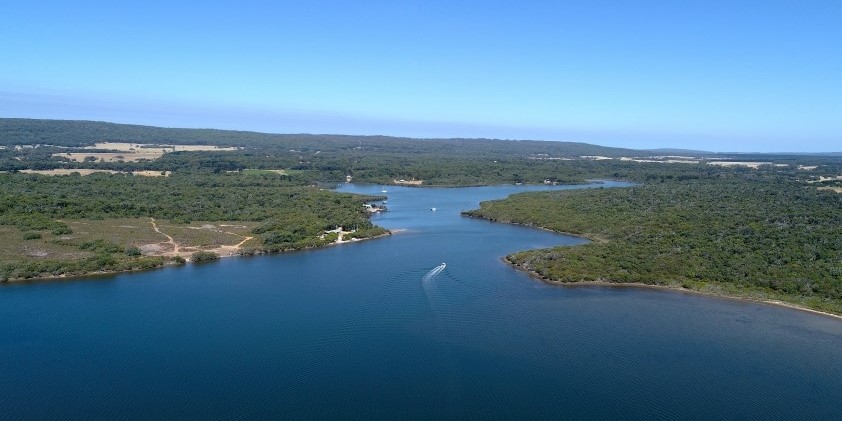Importance of managing waterways
Waterways are valuable natural assets with environmental, cultural, social and economic values. The values of a waterway are dependent on its physical condition and ecological health.
Protecting, restoring and managing waterways and their adjoining foreshores ensures that their physical condition and ecological health are maintained or improved now and for future generations.
Preventing harm to waterways costs much less than restoring degraded waterways. In contrast, reversing severe degradation takes considerable sustained effort and investment, and even then, significant improvements in condition may not be seen for many years.
Land-use and development activities are designed carefully near waterways to avoid flooding risks to people, properties and infrastructure, risks to public health, or harm to cultural and social values or the environment.
Potential threats to waterways include:
- altered hydrological regimes
- erosion and sedimentation
- degradation of water quality
- harm to aquatic and riparian vegetation, fauna and ecosystems
- algal blooms and fish kills
- harm to cultural and social values such as heritage, visual amenity, recreation and sense of place.
Our role in waterway management
The Department of Water and Environmental Regulation supports Western Australia's community and economy by protecting and managing the state's environment and water resources. We coordinate cross-government efforts to protect and manage waterways in Western Australia.
The Water Agencies (Powers) Act 1984 provides the Minister for Water and our department with the power to perform the general functions of conserving, protecting, assessing and managing water resources, including waterways.
Read more about our work below.
Our programs
Show moreOur programs
- Healthy Estuaries WA
- Bindjareb Djilba (Peel-Harvey estuary) Protection Plan
- Revitalising Geographe Waterways
- Healthy Rivers
- Kep Katitjin – Gabi Kaadadjan – Waterwise Perth action plan 2
- Drainage for Liveability
Protection and management of waterways and other water dependent ecosystems is also embedded in our everyday business.
Legislation, policies and guidelines
Show moreOur water resources management legislation helps us protect and manage waterways.
We advise on water and environmental management legislation, and prepare policies and guidelines about waterway protection and management.
We also assist other state agencies to consider waterway management in their policies and guidelines, where relevant.
Water allocation planning and water licensing
Show moreThe water requirements of waterways and other water dependent ecosystems are considered when decisions are made about how much water is available for use through the water allocation planning process.
We consider the state's water resources, including waterways, when we decide whether to grant or refuse, and set conditions on water licences and permits in accordance with the Rights in Water and Irrigation Act 1914.
Land use planning and development
Show moreOur regional offices provide advice about protecting waterways when land use and development is occurring nearby.
This includes guidance about managing urban waterways, the development of living streams and other water sensitive urban design features.
Environmental regulation
Show moreOn behalf of the Minister for the Environment, we assess licenses and works approvals and native vegetation clearing applications under Parts IV and V of the Environmental Protection Act 1986, Environmental Protection Regulations 1987 and Environmental Protection (Clearing of Native Vegetation) Regulations 2004.
We regulate a range of activities with the potential to affect waterways such as industrial activities, discharge of wastewater and clearing of native vegetation.
We respond to pollution incidents and relevant reports of pollution and investigate potential breaches of the law.
Improving water quality
Show moreWe develop water quality improvement plans to address water quality problems in estuaries (and the rivers and streams in their catchments).
Catchment models, developed to support the plans, quantify the sources of nutrients flowing into rivers based on land use in the catchment, and are used to predict the impact of management practices on nutrient loads.
The department may also apply remediation techniques to manage waterways, for example oxygenation plants are used to manage low dissolved oxygen levels in estuaries and soil amendment is used to treat high nutrient levels in subsoil drainage.
Waterway restoration
Show moreWe assist with planning, implementing and evaluating waterway management activities in priority waterways.
We provide specialist technical advice about engineering works for restoration and offer information, tools and resources to assist with assessing, planning, monitoring and restoring waterways. View our Healthy Rivers website for examples of our partnership projects.
We also provide assistance to natural resource management groups to develop plans for waterway management and restoration, including waterways management plans, river action and recovery plans.
Science to inform management
Show moreOur management decisions and advice are informed by science.
We assess water quality and waterway health to help us understand the current condition of waterways and the effectiveness of our management actions.
Other agencies roles in waterway management
Show moreOther agencies and entities have roles in selected aspects of waterway protection and management, including:
- Environmental Protection Authority (in relation to environmental impact assessment of significant projects, and policy and guidance on environmental matters such as Environmental Factor Guideline – Inland Waters)
- Department of Biodiversity, Conservation and Attractions (in relation to biodiversity, threatened and priority species and ecological communities, the Swan and Canning Rivers and the conservation estate (national park, nature reserves and state forest)
- Department of Primary Industries and Regional Development (in relation to nutrient management on farms, fish resources and biosecurity, including invasive plants and animals)
- Water Corporation (in relation to water quality, waterways that are Water Corporation managed reservoirs or drainage assets and Drainage for Liveability)



